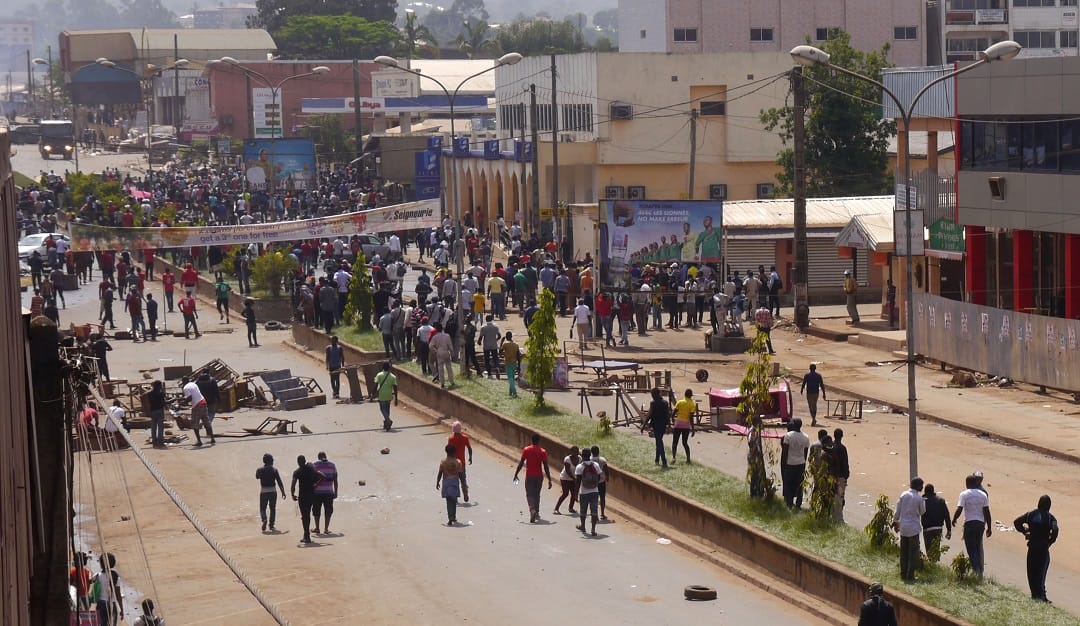
Anti-government demonstrators block a road in Bamenda, Cameroon, December 8, 2016. REUTERS/Stringer - RTSVBFL
Approximately 300 civilians were forced to flee Banga-Bakundu in Cameroon’s Southwest Region in June, according to a report from the United Nations Office for the Coordination of Humanitarian Affairs (OCHA).
The displaced residents sought refuge in neighbouring communities including Banga, Muyuka, Bombe-Bakundu, and Mbalangi. OCHA described the town’s “strategic position” as a key factor in its vulnerability amid the ongoing conflict.
Since 2017, Cameroon’s government forces have been engaged in clashes with separatist fighters in the Northwest and Southwest regions, who aim to establish an independent state known as Ambazonia.
The protracted conflict has claimed more than 8,000 lives and displaced nearly 500,000 refugees, alongside approximately 400,000 internally displaced persons, according to OCHA data.
Violence intensified in June during the official examination period.
The First School Leaving Certificate (FSLC) exams on June 10-11 and the General Certificate of Education (GCE) exams from June 3-20 were targeted by non-state armed groups. OCHA documented eight attacks on the education sector during this period, with threats directed at both parents and teachers to prevent participation in exams.
Beyond the separatist conflict, the Southwest and Northwest regions continue to experience localized tensions between farmers and herders, particularly in the Northwest’s Donga-Mantung department.
Disputes over grazing lands and livestock damage have escalated into violent incidents. On June 16, a Fulani herder reportedly attacked and wounded two women in Dumbo, accusing them of interfering with his cattle.
Similar clashes occurred in Misaje on June 19 and in Mamba on June 26, where both a herder and a woman sustained injuries.
OCHA emphasised that the convergence of armed conflict, educational disruption, and intercommunal disputes is exacerbating the humanitarian crisis in Cameroon’s Anglophone regions.
Aid agencies continue to call for enhanced protection measures for civilians and education staff, particularly during sensitive periods such as examinations.
The displacement in Banga-Bakundu highlights the urgent need for both conflict resolution and community-level interventions to prevent further harm to vulnerable populations.
The situation underscores the multiple layers of insecurity affecting Cameroon’s Southwest and Northwest regions, where civilians remain caught between armed groups, state forces, and localized disputes over resources.



